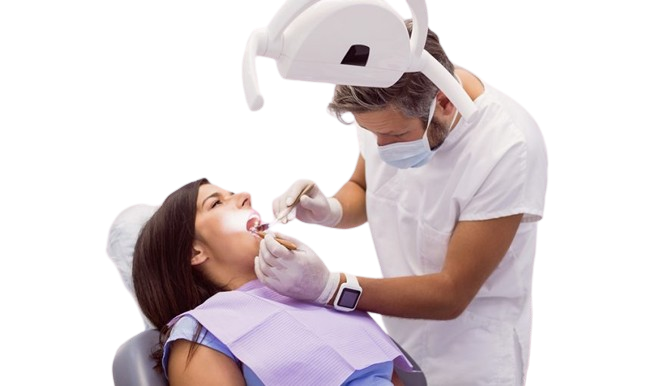Oral and Facial Surgery Expert in Perumbakkam
Your Trusted Partner in Oral and Facial Surgery
Oral and facial surgery addresses a wide range of issues affecting the mouth, jaws, and face, from complex extractions to corrective jaw surgeries. We are here to provide you with expert care and guidance to resolve your concerns and improve your overall health and well-being.

Understanding Oral and Facial Surgery
What are Oral and Facial Surgery?
Oral and facial surgery, also known as oral and maxillofacial surgery, is a specialized branch of dentistry that focuses on the diagnosis, surgical treatment, and management of conditions affecting the mouth, jaws, face, and related structures. This includes a wide range of procedures such as tooth extractions, dental implants, corrective jaw surgery, treatment of facial trauma, removal of tumors or cysts, and reconstructive surgery. Oral and facial surgeons are trained to handle complex cases that require both surgical expertise and comprehensive understanding of facial anatomy.
Who needs Oral and Facial Surgery?
Oral and facial surgery may be needed for individuals experiencing various conditions or issues affecting the mouth, jaws, or face. Some common reasons someone might require oral and facial surgery include:
Impacted Wisdom Teeth: When wisdom teeth do not fully emerge or grow in at an angle, causing pain, infection, or damage to surrounding teeth.
Tooth Extractions: For severely decayed, damaged, or infected teeth that cannot be saved with other dental treatments.
Dental Implants: To replace missing teeth with artificial tooth roots and prosthetic teeth for improved function and aesthetics.
Corrective Jaw Surgery (Orthognathic Surgery): To address jaw misalignment, malocclusion (improper bite), or skeletal discrepancies that affect facial symmetry, chewing function, and speech.
Facial Trauma: Treatment of injuries to the face, jaw, or mouth caused by accidents, falls, or sports-related incidents.
Temporomandibular Joint (TMJ) Disorders: Surgical management of TMJ disorders that cause jaw pain, clicking or popping sounds, and restricted movement.
Sleep Apnea: Surgical procedures, such as uvulopalatopharyngoplasty (UPPP) or maxillomandibular advancement (MMA), may be recommended for severe cases of obstructive sleep apnea.
Oral Pathology: Diagnosis and treatment of oral lesions, tumors, cysts, or other abnormalities in the mouth or jaws.
Reconstructive Surgery: Restoration of facial appearance and function following trauma, cancer treatment, congenital abnormalities, or developmental conditions.
Cosmetic Surgery: Procedures to enhance facial aesthetics, such as chin or cheek augmentation, facial contouring, or facial rejuvenation surgeries.
What are the benefits of Oral and Facial Surgery?
- Relief from pain and discomfort associated with dental or facial conditions.
- Improved oral function, including chewing, speaking, and swallowing.
- Correction of facial asymmetry or malocclusion for enhanced aesthetics.
- Restoration of dental health and prevention of further oral complications.
- Treatment of facial trauma to restore facial appearance and function.
- Rebuilding and reconstruction of facial structures after injury or surgery.
- Correction of jaw misalignment for improved bite and facial harmony.
- Replacement of missing teeth with dental implants for stability and functionality.
- Treatment of sleep apnea to alleviate breathing problems during sleep.
- Enhancement of overall quality of life and self-confidence through improved oral and facial.
What happens during the procedure?
During oral and facial surgery procedures:
- Anesthesia is administered to ensure comfort and minimize pain.
- Surgical incisions are made to access the affected area.
- Diseased or damaged tissues are removed or repaired.
- Implants, grafts, or prosthetics may be placed as needed.
- Surgical site is closed with sutures or other closure techniques.
- Post-operative instructions are provided for optimal healing and recovery.
What are the risks involved?
- Infection at the surgical site.
- Bleeding during or after the procedure.
- Nerve damage causing numbness or tingling.
- Swelling and bruising around the surgical area.
- Pain or discomfort during the recovery period.
- Adverse reactions to anesthesia or medications.
- Formation of blood clots or hematoma.
- Delayed wound healing or wound dehiscence.
- Damage to adjacent teeth, nerves, or structures.
- Rare complications such as sinus problems or allergic reactions.
What are the disadvantages of Oral and Facial Surgery?
- Risk of complications such as infection or nerve damage.
- Potential for post-operative pain and discomfort.
- Time-consuming recovery process.
- Costly treatment, depending on the procedure.
- Possibility of unsatisfactory aesthetic outcomes.
- Need for follow-up appointments and ongoing care.
- Risk of anesthesia-related side effects.
- Potential for scarring or changes in facial appearance.
- Limited availability of certain procedures in some areas.
- Emotional and psychological impact on patients.
Frequently Asked Questions on Oral and Facial Surgery
Oral and facial surgeons are dentists who have undergone additional years of specialized training in surgical procedures related to the mouth, jaws, and face. They are highly skilled in both dental and surgical techniques.
Oral and facial surgery is typically performed under local or general anesthesia to ensure patient comfort during the procedure. Post-operative pain and discomfort can be managed with pain medications prescribed by the surgeon.
Recovery time varies depending on the type of procedure performed and the individual’s healing process. In general, patients can expect some swelling, bruising, and discomfort in the days following surgery, with full recovery taking several weeks to months.
Depending on the procedure performed and individual recovery time, patients may need to take a few days to a week off from work or school to rest and recover following oral and facial surgery.
Preparing for oral and facial surgery involves following pre-operative instructions provided by the surgeon, which may include fasting before surgery, discontinuing certain medications, and arranging for transportation to and from the surgical facility. Additionally, patients should ask any questions they have about the procedure and recovery process during pre-operative consultations.
